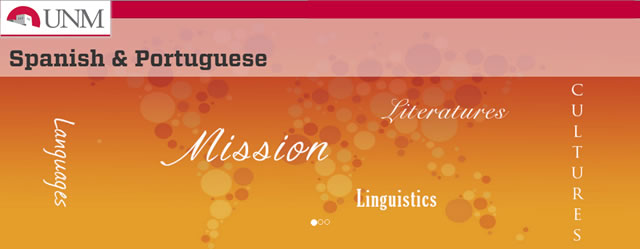
Spanish and Portuguese ETDs
Publication Date
6-26-2015
Abstract
Previous research about the African slave experience in the Ibero-Atlantic world has understood slave agency, or more polemically, slave autonomy, through the binary of accommodation versus resistance. However, current African Diaspora scholarship (Schwartz, Thornton, etc.) situates the slave experience within a spectrum of lived experiences. These lived experiences range from accommodation to resistance but often overlap: lived experiences expressed overtly as accommodation reveal covert resistance. My dissertation explores the words of three Afro-women: \xdarsula de Jesus (1604-1666), an Afro-Peruvian Mystic, Sister Teresa de Santo Domingo (1676-1748), also known as Sor Chicaba, who lived as a Dominican tertiary in Salamanca, Spain, and Brazils lay religious Rosa Maria Egipcíaca (1719 ca.-1771). My dissertation explores the lived experiences and the words of these three female slaves, who negotiated their respective realities within the developing orthodox Catholic religious space in the early modern Ibero-Atlantic world. Specifically, my dissertation examines how these early modern Afro-women created agency, which simultaneously accommodated the aims of the Catholic Church and resisted its homogenizing efforts. Their manipulation of Catholic imagery and religious rhetoric permitted these women to construct a critique of the Catholic religious space: these Afro-women employed the tropes of the female mystical tradition to critique their respective societies and testify to their unique experiences as female slaves in the colonial context. My dissertation contextualizes within the early modern Ibero-Atlantic slave experience the ways in which these women's disparate texts, the spiritual journal, the hagiography and Inquisition testimony, generate an embodied and historicized praxis. My dissertation considers the similarities and the differences in the content and form of these different texts. As such, I apply different methodological approaches to compare and contrast these women's experiences and their words. First, I compare these women's visions to Catholic imagery and specifically, those images invoked by female mystics to describe their experience with the divine. Second, I compare these visions to images that carry importance in Afro-religious practice. Third, my dissertation applies performance theoretical frameworks to analyze the ways in which these women gave voice to their colonial slave experience. This methodology fosters a way to read these women's voices as testimonies of their unique negotiation and critique of their respective slave societies of the early modern Catholic Ibero-Atlantic world.
Degree Name
Spanish & Portuguese (PhD)
Level of Degree
Doctoral
Department Name
Spanish and Portuguese
First Committee Member (Chair)
Bieber, Judy
Second Committee Member
Lehnen, Leila
Third Committee Member
Milleret, Margo
Sponsors
Russell J. and Dorothy S. Bilinski Foundation, Latin American and Iberian Institute UNM
Language
English
Keywords
slavery, mystic, early modern, performance, ibero-atlantic, religion
Document Type
Dissertation
Recommended Citation
Spaulding, Rachel. "The Word and The Flesh: The Transformation of Female Slave Subject to Mystic Agent through Performance in the Texts of Úrsula de Jesus, Theresa (Chicaba) de Santo Domingo and Rosa Maria Egipcíaca." (2015). https://digitalrepository.unm.edu/span_etds/32
Included in
European Languages and Societies Commons, Latin American Languages and Societies Commons
